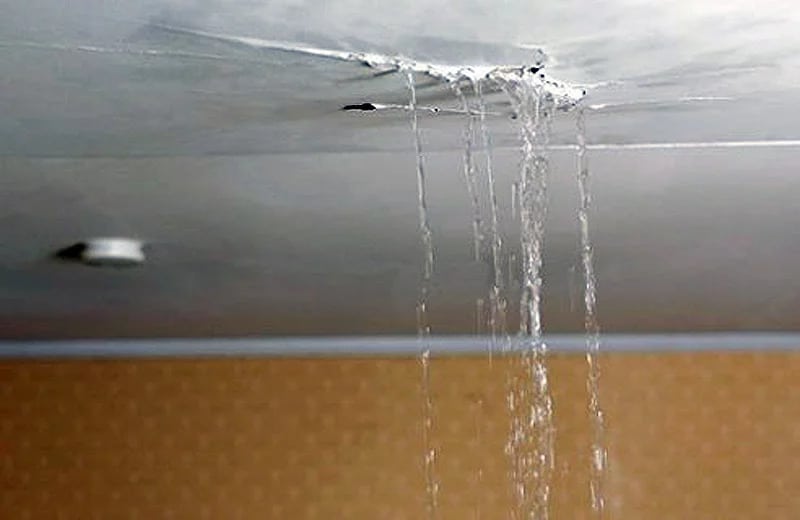No matter what time of year it is, it’s never a bad time to figure out your plan for winterizing your home. But first, what is winterizing? Do you need to winterize your home? And if you do… where do you start?
What Does Winterizing a House Mean?
Winterizing a house means making preparations to ensure the extreme temperature drops of winter don’t damage your home. Read on to learn what those preparations should be, how you can implement them, and what happens if you don’t.
Should You Winterize Your Home?
Yes, you should winterize your home, if you live almost anywhere in the United States.
The only people who don’t need to winterize their homes are people who live in climates so warm, the temperature never dips below freezing. But for anyone who owns a home where the temperature does go below freezing, they should be winterizing.
Not winterizing means opening yourself up to the possibility of many different kinds of damage.
What Happens if You Don’t Winterize Your Home?
The damage that your home could suffer if you don’t winterize can be truly catastrophic. We at Cleaner Guys have seen it countless times over the years — in fact, winter is usually our busiest season, because most people don’t properly winterize their homes! We have decades of experience restoring homes that suffered enormous water damage and mold damage because they didn’t winterize. Here’s what can happen.
- Burst water pipes. When water freezes inside pipes, it expands, and the pipes often crack and break under the pressure. We’ve seen this cause flooding. But more often we’ve seen it cause invisible leaks inside the walls that you don’t notice until the mold is widespread.
- Higher risk of rodent infestations. In the winter months, all kinds of small animals will seek out your home, because it’s warm. If you don’t take extra care to block off entrances to your home, they will cause more damage. We’ve cleaned up many water damage jobs that were caused by animals nesting in insulation and chewing through pipes, flooring, and more.
- Massive Utility Bills. If you don’t get your water heater and heating system checked before winter, your system may be under far more load than it needs to be, causing your bills to skyrocket.

How To Winterize Your Home
Okay, now we know what can happen if you don’t winterize your home, and whether you’re one of the people who should. So how do you go about getting it done? Luckily, it’s not all that complicated, and there are only a handful of key steps to take.
- Inspect your plumbing. Have a plumber check all your pipes before winter each year. We at Cleaner Guys get countless calls because an already old or weak pipe burst and caused massive water damage. Getting an annual inspection will cost you far less in the long run, compared to catastrophic water damage. Trust us, we’ve seen it happen far too many times.
- Insulate your plumbing. A straightforward way to ensure that your pipes won’t burst is to shield them from the cold. Insulate pipes that are exposed, particularly in the crawlspace under your house. Most plumbers and insulation companies can do this for you. Once again, the fee you’ll pay will be far smaller than what you would pay if a pipe bursts. Check out HomeAdvisor’s article here to learn what you can expect to pay.
- Inspect your heating system. Getting an annual inspection on your water heater and heating system is another wise practice. You’d be surprised how often a malfunctioning water heater is the source of serious water damage, but we see it all the time. Take the time and small expense to make sure yours doesn’t rupture this winter.
- Mind your water flow. If you live in the house you’re winterizing, make sure you’re running taps regularly. Keeping the water moving through your pipes can keep it from having the chance to freeze. On the other hand, if you don’t live in the house, shut off the water supply and drain the faucets. If sitting water freezes and bursts in a vacant house, you may not be aware of the water damage until it’s severe.
- Check for rodent access points. Go around the outside of your home and inspect the foundations close to the ground. Identify and fix any holes or broken barriers that small animals can get through to prevent infestation. Do the same for your attic. Climb up inside to inspect for access points, or pay an insulation company to do so.
Once again, following these steps may cost you a few hundred dollars annually. But keep this in mind: the steps above are advice from the professionals. We clean up and repair a huge influx of water damage in the winter, and almost all of it is caused by the exact things mentioned above. And water damage restoration usually costs thousands and thousands of dollars. The expense of annual winterizing inspections is worth it.

The Appeal of the Cleaner Guys Way
If you ever do suffer water damage in your home, Cleaner Guys may also be the wisest choice to help you take care of it. We’re one of the most popular water damage restoration companies in Mount Vernon, WA and the larger surrounding area, from Bellingham to Everett and the San Juan Islands to Concrete.
We earn this popularity by having the lowest, most honest prices around, as well as the highest-quality workmanship. Our customer service is award-winning, and we’re widely known for giving the most attentive care to saving as many of your valuables as possible — far more than most other restoration companies.
Water Damage Breeds Mold
Water damage can very often lead to mold as well, and it’s often hidden inside the walls of your home, where you can’t know it’s there until it’s severe.
Cleaner Guys performs affordable mold inspections with cutting-edge equipment that almost no other restoration companies are even aware of yet. It gets you results about whether you have mold in minutes, instead of the traditional days. If you ever feel the need to check and see if your home is harboring hidden mold, choose Cleaner Guys as by far the fastest and most affordable option.
Key Takeaways
Unless you live in a perpetually warm climate where the temperatures never fall below freezing, you should winterize your home. The key ways to do that are getting annual inspections in the fall on your plumbing, heating system, and water heater, insulating piping exposed to the cold, and protecting from animal infestations. Doing these things costs a small sum every year, but it prevents catastrophic water damage that can come from burst pipes and rodent infestation, as well as keep your utility bills lower.
And of course, if you ever do suffer water damage, turn to Cleaner Guys, the restoration team with the best reputation, lowest prices, best equipment, and award-winning customer service.
Listen to the owner and president of Cleaner Guys talk mold and water damage secrets on the “Real Estate Revealed” podcast below!
Disclaimer: This article is for informational purposes only. No part of this article is medical or legal advice, and may not be used as such. For all serious medical matters, consult your doctor. For all serious legal matters, consult your legal advisor. This article contains Cleaner Guys’ experience and opinions only.

